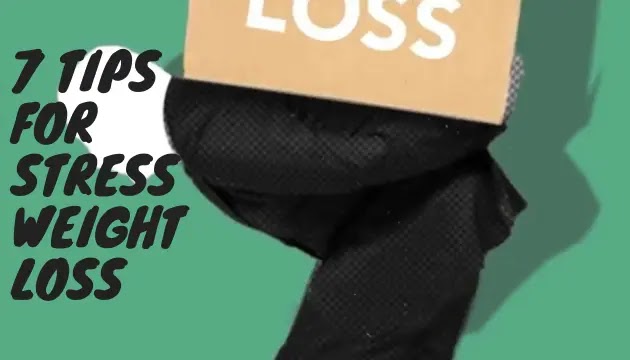7 Tips for Stress Weight Loss

How does stress make you lose weight?
Yes, you can lose weight when you are stressed or depressed. This can be because when you are not stressed, your body cannot break down your stored fat (Stress Weight Loss)
(for example, when your muscles are healthy, you burn calories faster, when you are not sleep deprived, you burn fat at a faster rate).
When you are stressed, your body has to work harder to burn energy. The increased production of stress hormones slows down your metabolism.
Why does stress make you lose weight? The body thinks that the threat of serious danger to your well-being is enough to boost your metabolism and turn off fat loss.
Therefore, your body will work harder to burn calories and your fat is burned off. On the other hand, stress also makes you hungrier and this makes you eat even more.
What anxiety causes weight loss?
Stress is often referred to as the fifth vital sign. If you are experiencing heightened levels of stress, you may need to seek professional advice to understand its source.
Research published in the journal Psychosomatic Medicine has linked chronic stress to a range of negative health effects, including heart disease, stroke, and diabetes.
Sufferers of social phobia are at a greater risk of heart disease, according to the study.
Other studies have identified a link between experiencing more stress and those with diabetes.
Stressful situations and long periods of social isolation can trigger depression and anxiety.
This can make the struggle to lose weight more difficult, because you may have less energy, may be unable to exercise, and may not feel motivated to adopt healthy habits.
Do stress and depression cause weight loss?
There is a lot of truth to the idea that stress, anxiety, and depression can cause weight gain and body weight gain.
Many, if not most, individuals who are clinically depressed, suffer from stress and anxiety.
Some research has even found that people who are overweight or obese tend to have more stress and anxiety than those who are thin.
“Stress and Anxiety Increase Body Weight,” Harvard Health Publishing, 2013. The research shows that:
People who suffer from depression are more likely to have more visceral fat tissue – the fat stored around our internal organs and in our abdomen.
These types of fat are harder to lose. People who are obese and obese in their 20s are more likely to have gained more weight than those who are not obese.
The higher the BMI, the more weight people gain.
What is considered rapid weight loss?
You’ll need to read further in this article to find out exactly how stressful situations (and stress is another term for anxiety) cause weight loss, and how to reverse the process.
But for now, I want to illustrate the difference between stress and anxiety.
This is important because anxiety is similar to stress in that it can cause changes in behavior — it can help you learn more, but if you don’t handle it well,
It can also help you adapt to a particular situation or environment and cause negative changes.
Advertisement And while stress and anxiety are thought of as essentially the same thing, there’s a significant difference.
Stress occurs within the body and affects your physiology, whereas anxiety occurs within the mind and affects your behavior.
stress weight loss Reddit
When does stress affect your weight? This medical and psychological question is pretty simple, despite all the stories on the internet.
To lose weight, you just have to add more weight to your body. Period. That’s all there is to it.
But the way our bodies respond to stress can have a serious impact on how much weight we can lose.
The results can be temporary, or they can be long-lasting and very detrimental to our weight loss goals.
It’s not always apparent how stress is affecting your body. You might think you’re overeating and exercising excessively, but all your behavior is probably fine.
The body is an amazing thing, and it can pick up subtle signals from our surroundings that are very difficult for us to detect.








0 Comments